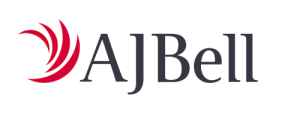During April, our net asset value return was -2.1% and shareholder returns were -0.1%, in comparison to the FTSE All-World Index return of -2.4%.
After a very strong start to the year, April saw weaker equity markets on growing evidence that US inflation is not declining as quickly as had been hoped. US Federal Reserve Chair Jerome Powell reiterated that recent data, particularly resilient labour market releases, suggested the need for higher rates for longer, prompting investors to price out the chances of rate cuts in the US and pushing yields higher. Only one to two cuts are now expected this year, in sharp contrast to the more bullish expectations at the start of 2024. Rising geopolitical tensions, notably in the Middle East, also contributed to equities losing ground during April.
With the first-quarter earnings season underway, there were promising signs, particularly in the US where c.80% of companies (thus far) reported better-than-expected earnings. Estimates for the ‘Magnificent Seven’ giants have been revised upwards by c.6% to a projected year-over-year growth of c.40%, driven by widening margins and revenue growth. However, it is notable that stock price reactions have been underwhelming despite strong positive surprises – stocks beating estimates are, on average, trading flat, while those missing estimates are being penalised more than usual. Encouragingly, the spread between US and European earnings growth is narrowing, contributing to some broadening out of the rally we have seen over the year to date.
Across regions, equities in China (+7.4%), the UK (+2.5%) and Europe (-0.8%) delivered outperformance versus the global benchmark, while the US (-3.3%) and Japan (-3.9%) lagged after several months of exceptional returns. China’s rebound marks a sharp turnaround after a poor start to 2024 – in April, manufacturing activity grew at its fastest pace in 14 months and first-quarter GDP growth came in stronger than expected. Property stocks led gains here on renewed speculation that regulators would loosen property policy and inject stimulus to boost sales. UK shares also performed well, benefiting from the broadening out of the global stock market rally, notably stronger performance across commodity/value/defensive sectors on lingering geopolitical/supply concerns. Indeed, in April, there was a shift away from the technology-driven dominance that has characterised the equity market for the preceding months.
Vertiv Holdings (+14.9%), a leading provider of IT infrastructure for data centres, which is held at an overweight relative to the benchmark, was the most significant positive contributor to our relative returns during April. Continued advances in artificial intelligence (AI)-enabling technologies are necessitating upgrades to data centres globally, and Vertiv is well positioned to benefit from this trend. First-quarter earnings for the company highlighted strong performance across the board on accelerating AI-driven demand, with orders and operating profit rising 60% and 42%, respectively, year on year. The Trust’s overweight position in Turkiye Petrol Rafinerileri (+18.6%), Turkey’s largest oil refiner, also contributed positively on strong refining margins and tighter supply from China. In contrast, our overweight position in pharmaceutical manufacturer Bristol-Myers Squibb (-17.3%) detracted as the company cut its full-year earnings forecast due to impacts from recent acquisitions. The Trust’s overweight position in media and technology company Comcast Group (-10.7%) also detracted from relative returns due to slowing broadband subscriptions, despite earnings-per-share exceeding first-quarter earnings expectations.
We ended the month at a discount of 9.5%, narrowing from a discount of 11.3% at the end of March. Net gearing continued to be conservative at 5.7% (with debt at fair value) for month-end.










